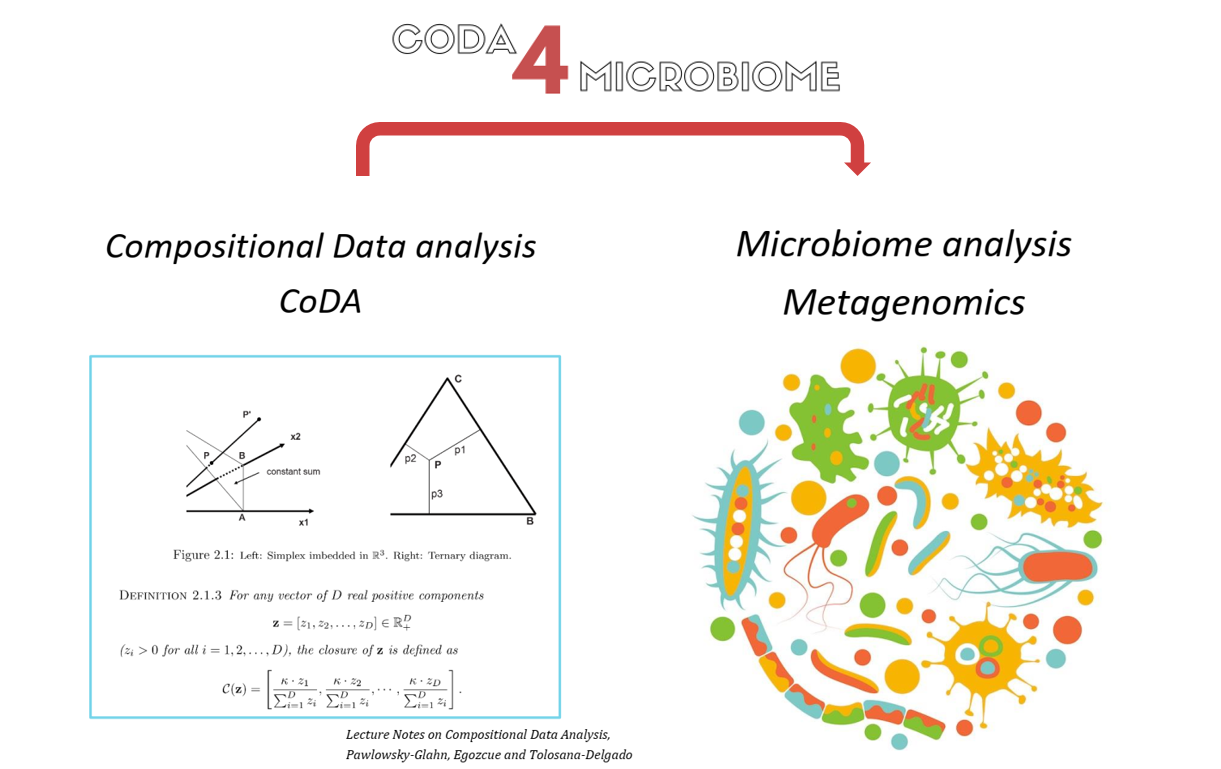Presentation
We introduce a new package, coda4microbiome, available in CRAN, that aims to bridge the gap between microbiome research and compositional data analysis (CoDA), cross-sectional, longitudinal and survival studies.

Understanding the role of the microbiome in human health and how it can be modulated is becoming increasingly relevant for preventive medicine and for the medical management of chronic diseases (Calle 2019). High-throughput sequencing technologies has boosted microbiome research but the compositional nature of microbiome data is a major challenge for their analysis.
Microbiome count data is compositional since their total are constrained by the sequencing depth. Relative abundances (proportions) are obviously constraint by a sum equal to one. This total constraint induces strong dependencies among the observed abundances of the different taxa. In fact, nor the absolute abundance (read counts) nor the relative abundance (proportion) of one taxon alone are informative of the real abundance of the taxon in the environment. Instead, they provide information on the relative measure of abundance when compared to the abundance of other taxa in the same sample.
Our package provides a set of functions to explore and study microbiome data within the CoDA framework, with a special focus on identification of microbial signatures that can serve as biomarkers of disease risk and prognostic. The results are expressed as the (weighted) balance between two groups of taxa, those that contribute positively to the microbial signature and those that contribute negatively (Susin et al. 2020).
The interpretability of results is of major importance in this context. The package provides several graphical representations that facilitate the interpretation of the analysis and the identified microbial signatures.
Calle M.L., Pujolassos, M. and Susin A. (2023) coda4microbiome: compositional data analysis for microbiome cross-sectional and longitudinal studies. BMC Bioinformatics volume 24, 82 https://bmcbioinformatics.biomedcentral.com/articles/10.1186/s12859-023-05205-3
Pujolassos, M., Susin A. and Calle M.L. (2024) Microbiome compositional data analysis for survival studies NAR Genomics and Bioinformatics, Volume 6, Issue 2, June 2024, lqae038 https://doi.org/10.1093/nargab/lqae038
coda4microbiome: https://cran.r-project.org/web/packages/coda4microbiome/index.html
